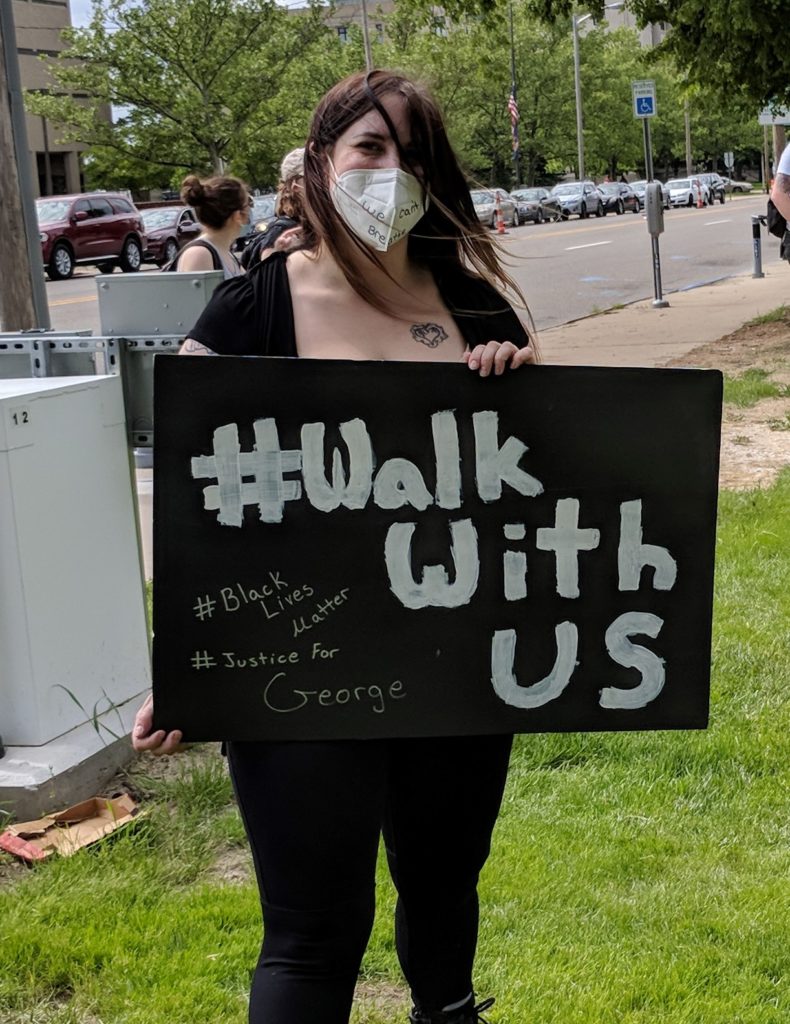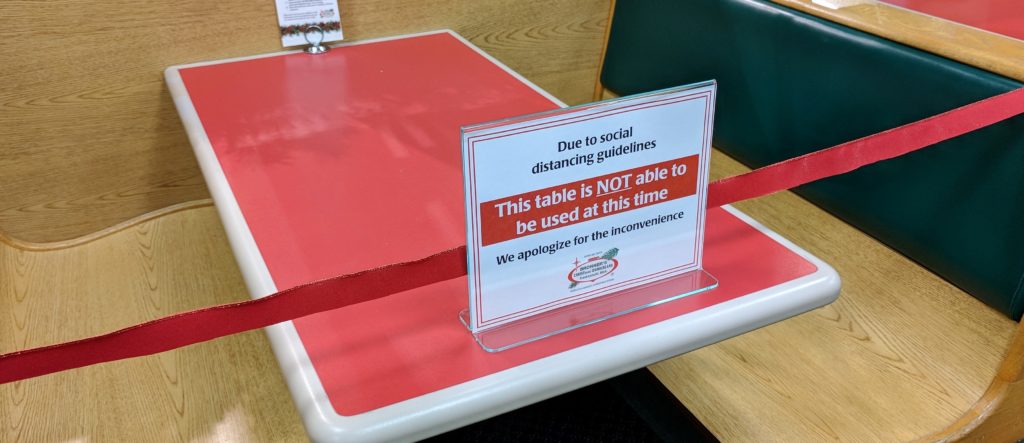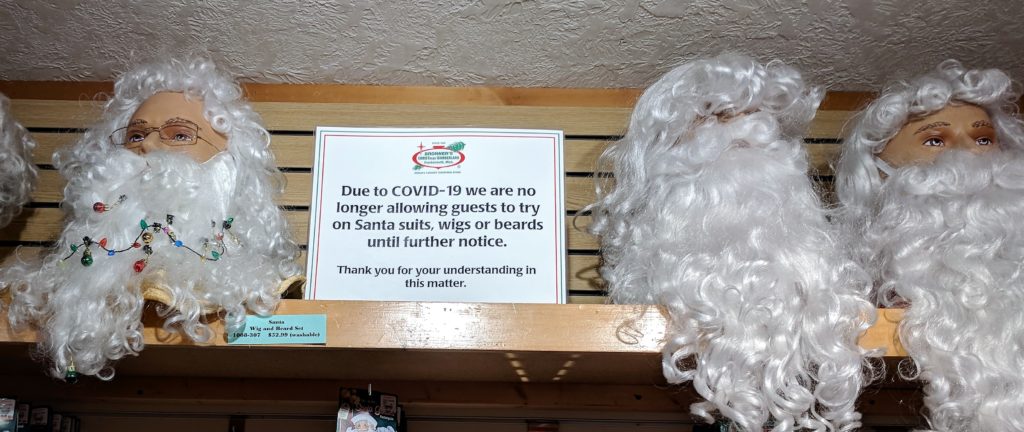
Comet NEOWISE (Free access photo from NASA)
By Paul Rozycki
This summer, astronomers have discovered a new presence among the stars, the Neowise comet, in the northern sky. It’s not a large comet, just visible under the Big Dipper. It has come closest to the earth in the middle of July, and has been observable for the last few weeks.
Many ancient peoples often felt that comets were portents of doom and ruin. The Romans and the Greeks felt they were a sign of major events, both good and bad. In the Middle Ages, comets were thought to predict natural disasters.
Today, we are in the midst of a pandemic that has killed more than 140,000 Americans, and threatens to grow worse in the months to come. As a result, unemployment has reached near depression levels, with little relief in sight. Race relations are more fragmented than they have been for a half century. We are led by a bombastic, blowhard president who grows more authoritarian by the day. All of this is happening as we prepare for an election that may be unlike any in our history.
We’ve already received more than a few 2021 calendars in the mail, as if we can’t wait for this year to be history.
With the year only half over, is there any good news that can come out of 2020?

(Photo by Paul Rozycki)
Maybe. Just maybe, the current tsunami of crises may give us the opportunity to emerge from 2020 with some hope for a better 2021.
Obviously there are no guarantees, but here are a few possibilities.
- The pandemic: Unlike pandemics of ages ago, science has a greater ability to respond to this one. At this time, there are dozens of serious attempts to create a viable vaccine by early next year, and several seem promising. This research hasn’t happened as quickly in past years, and it may give us a roadmap for dealing with the next pandemic that we face.
2. The American medical system: For all the boasting about how the U.S. has the most advanced medical system in the world, our response to the COVID-19 pandemic has revealed shocking weaknesses in our preparation, and our ability to deliver medical services. Many other nations have responded much more effectively than we have, and the infection rate reflects that. Perhaps this will give us reason to reevaluate how we deliver medical care. Whether it’s Obamacare, Medicare for All, or something else, few can doubt that we have great room for improvement. Perhaps the crisis will give us the incentive to take action.
3. Racial division: The Black Lives Matter movement highlighted the racial disparities and divisions in a way that we haven’t seen since the 1960s. Whatever excesses that might have been in some protests, no one can deny the blatant unfairness of the criminal justice system, the educational system, and the economic system. The hopeful news is that most of the protests have been integrated, multiracial events. In spite of all the partisan presidential attacks, public opinion strongly supports most of the goals of those working for change, and major institutions seem committed to making some real progress in healing our racial divisions.
4. The 2020 election: This year’s election will be different in many ways. Many of us will be voting absentee for the first time. By all measures, an absentee/mail-in voting process is as honest and fair as any. It will probably increase voting turnout, and will not automatically benefit either party. By receiving the ballot early, voters will have an opportunity to evaluate the candidates and proposals in more detail, rather than having to make a quick decision in a voting booth. Voting by mail will also provide a paper copy for those concerned about computer fraud and hacking.
5. Party conventions: This month’s political party conventions will be different as well. The Democrats will be hosting an all-virtual convention. At this time, the Republicans have also cancelled their large gathering planned for Florida and are likely to have a similar convention. That also may not be all bad. For many years, the party conventions were the real place where the nominee was chosen, with smoke-filled rooms, and back-room deals. They were genuine newsworthy events, and they were often covered gavel-to-gavel by the major networks. For the last half century, there has been little drama and suspense and the nominees were well-known months before the conventions met. They have become TV specials to promote the party. This year may give us reason to focus on issues beyond the balloons and banners.

6. State budget: In spite of all their differences, the Republican state legislature and Democrat Governor Gretchen Whitmer reached an agreement on next year’s budget. This came as they made painful choices to cut and shift spending in response to the loss of revenue from the COVID-19 pandemic. If it could happen in Michigan, could it happen in Washington? Maybe the partisan divisions can be healed. Sometimes a crisis can make the impossible seem possible.
7. Education: However schools open — or don’t open — we are certain to see much more online classes and learning. While the online experience lacks the interaction of a real classroom, and there is unfairness for those who don’t have technology, if it’s done right, it’s also possible that there can be some advantages to online classes. Students can pace themselves, and perhaps be more creative in how they respond to new ideas. It can offer flexibility for those with other demands on their time. Online learning isn’t perfect and it has some real problems, but there are at least a few advantages to using it. We may learn how to use it more effectively during the pandemic.
8. Working at home: While working from home has been a growing trend long before the pandemic hit, it has grown and, while it has it limits, there may be some real advantages. A number of studies show workers are more productive when they work at home, as they avoid long commuting times and traffic jams. The environment seems better with fewer cars emitting gasoline fumes on the expressways.
9. Essential workers: If nothing else, the pandemic has given us a new appreciation of who is — and isn’t — an essential worker. All too often, those who are the lowest paid are expected to deliver the most essential services we all need. Maybe the pandemic will create the motivation to pay clerks, truck drivers, postal workers, waitresses, trash collectors, and medical workers more fairly.1
10. Appreciation of the basics: As most of us stay home and live without the usual public events that fill our lives, we may learn that there is a lot to be said for a quiet afternoon at home, reading a book, working in the garden, writing letters to friends, and sharing our time with loved ones.
There is no guarantee that any of these things will happen. Each has the potential for more problems and turmoil, and any of these hopes could change in an instant. But if all else fails, there is still one piece of good news: if the Neowise comet has anything to do with this year’s crisis, it won’t be back for another 6800 years.

Display at Bronners in Frankenmuth (Photo by Paul Rozycki)
EVM Political Commentator Paul Rozycki can be reached at paul.rozycki@mcc.edu.


You must be logged in to post a comment.